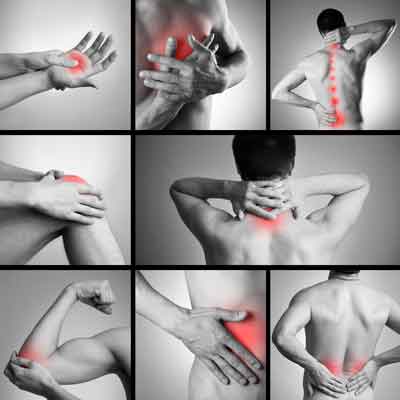Chronic Pain Management

Chronic pain can have a significant impact on every aspect of your life. It can make you tired and irritable, it can start to affect relationships with those around you and it can lead to stress, anxiety or increase depression. It can make you feel isolated and alone, cut off from those around you. You may find that you start cancelling social engagements or taking time off work as you do not feel able to cope with them, or you do not know if you will be having a ‘good day’ or a ‘bad day’. You may feel that those around you do not understand what you are going through which can feel very frustrating. For this reason many people struggle with the fact that chronic pain conditions can be ‘invisible’ – there is often no external indicator that you have limitations, which means that other people have no way of telling how much pain you are in or how much you may be struggling.
Changes in Your Nervous System
The idea of a chronic pain problem can be very daunting and worrying. You may be wondering how long it will last, what it may mean, and how much it will impact your work and home life.
When you have chronic pain, your nervous system undergoes some changes making it much more sensitive than it used to be. Your body sends you pain as a response to threat – it wants you to change what you are doing to avoid causing injury. Normally you require some form of tissue damage or you need to be close to causing tissue damage for your body to generate a pain response. For example, if you step on a pin, stub your toe or catch your leg on the edge of a table, your body will generate a pain response because you have just caused a minor injury. When the nervous system is sensitised, ‘normal’ everyday movements that are not causing any tissue damage can generate this same response – you may find that just turning your head or lightly touching your leg causes you to experience pain.
These changes to your nervous system started happening when your pain first began. Even though any injuries have now healed, your body still has ‘pain memory’ and therefore continues to behave as though you still have the injury.
Avoiding painful activities does not help, but neither does ignoring the pain and trying to ‘power through’
If you experience chronic pain it is very common to find that you are avoiding activities which may make your pain worse. This is understandable as pain is a very unpleasant experience. However, this can actually make things worse in the long term. Once the original injury has healed there is no reason that you can not do all your activities. Doing less can lead to muscle weakness, joint stiffness and increased pain sensitivity which can worsen your problems. However, taking the opposite approach and ‘powering through’ your pain regardless can also make your symptoms worse in the long-term.
How can physiotherapy help?
Physiotherapy can help to break you out of the chronic pain cycle. At Nebula Physio and Wellbeing we combine both your physical and emotional wellbeing to maximise your function and minimise your pain. We will listen to your problems and work with you to build a treatment plan specifically tailored to work towards your aims and goals. We will guide you through the recovery process at a safe and steady pace, breaking your activities into smaller and more achievable steps.
What physiotherapy may entail
Your physiotherapy programme will be individually tailored to your own goals, time constraints and preferences. Some of the options you may benefit from include:
- Pain management education
- Graded exercise and activity
- Integration of mindfulness, CBT (cognitive behavioural therapies), ACT (acceptance and commitment therapy), or MI (motivational interviewing) techniques to assist with the emotional and psychological aspects of returning to work and activity
- Flexibility and strength work
- Movement pattern correction/re-education
- Postural correction
- Ergonomic advice for work and home
- Acupuncture for pain management, stress/anxiety, and sleep problems
- Sleep assessment
Elizabeth Watson-Rose
and Sarah Massey
specialise in treating complex spinal conditions and chronic pain.





